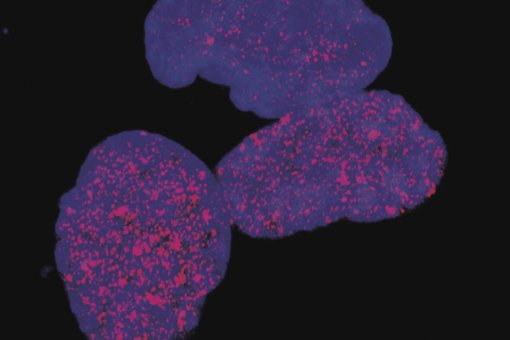Contact

Researchers at IRB Barcelona report the first data on the functions of a new gene that is altered in diabetes, published in PLoS One.
Thyroid hormones are crucial for health as they maintain the vital tone of organisms. Overproduction of thyroid hormones causes metabolism to speed up while underproduction causes it to slow down. The dysregulation of thyroid hormones (hyperthyroidism or hypothyroidism) leads to the development of all kinds of disorders, such as excessive weight gain or loss, sleep disturbances, nervousness, mood swings and a long list of etceteras. Antonio Zorzano, researcher at the Institute for Research in Biomedicine (IRB Barcelona), and his team have identified a gene, which they have named DOR, that regulates thyroid hormone activity. The results of their research have been published today in the scientific journal PLoS One.
The researchers have observed that the proteins produced by the DOR gene do not resemble any other group of proteins described to date and very probably form part of a new family. Zorzano explains, "we are opening up a completely new field of study. In fact, our work provides that first descriptive and functional data for this gene and its proteins". This finding will lead to a better understanding of the action of thyroid hormones and the effects caused when these are altered.
Interest in the DOR gene arose when the team observed that it is highly repressed in muscle tissue cells in diabetic rats. The researcher goes on to explain, "it is clear that some factor related to diabetes causes the decrease in DOR expression and that the repression of the gene directly affects the action of thyroid hormones". The next step will be to examine the effect of the absence of this protein on the onset and maintenance of diabetes. According to Zorzano, "at the moment it is too early to know whether the DOR protein can be used as a therapeutic target against diabetes. It is now necessary to perform further research into its basic biology and to determine its association with diabetes", clarifies the scientist.
About IRB Barcelona
The Institute for Research in Biomedicine (IRB Barcelona) pursues a society free of disease. To this end, it conducts multidisciplinary research of excellence to cure cancer and other diseases linked to ageing. It establishes technology transfer agreements with the pharmaceutical industry and major hospitals to bring research results closer to society, and organises a range of science outreach activities to engage the public in an open dialogue. IRB Barcelona is an international centre that hosts 400 researchers and more than 30 nationalities. Recognised as a Severo Ochoa Centre of Excellence since 2011, IRB Barcelona is a CERCA centre and member of the Barcelona Institute of Science and Technology (BIST).



